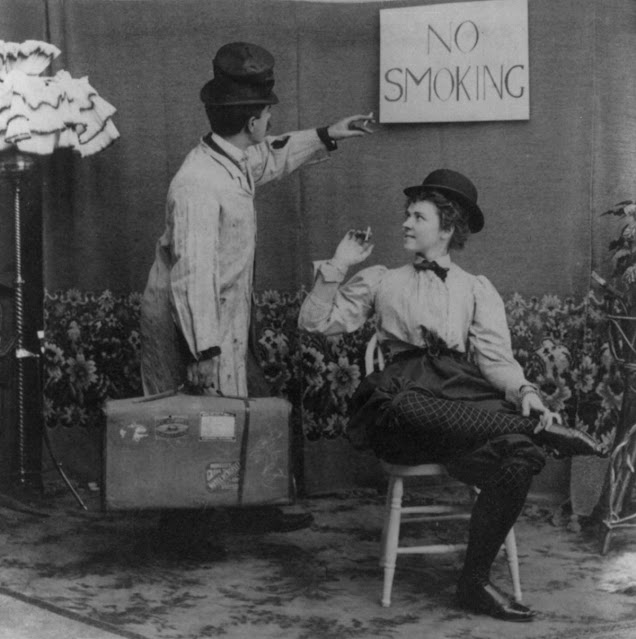On January 21, 1908, it became illegal for women to smoke in public in New York City. That day, the Committee on Laws of the Board of Aldermen unanimously voted to ban females from lighting up in public places. The law, called the Sullivan Ordinance, put the responsibility of preventing women from smoking not on the women themselves but on business owners. It was named after the man who proposed it: Alderman Timothy “Little Tim” Sullivan. According to reports, Sullivan had never seen a woman smoke in public but was repulsed at the thought of it.
“If they are telling the women they must not smoke in public they should tell the men not to also. It is perfectly ridiculous. Women should not be discriminated against in any way.” Mary Garrett Hay, Head of the New York City League of Women Voters, 1908
Right after the ordinance was enacted, on January 22, Katie Mulcahey, the only person cited for breaking this ordinance, was fined $5 for smoking in public and arrested for refusing to pay the fine; however, the ordinance itself did not mention fines nor does it ban women from smoking in public. “I have never heard of this new law and I don’t want to hear about it. No man shall dictate me,” she reportedly told the judge.
She was released the next day. The mayor at the time, George B. McClellan Jr., vetoed the ordinance two weeks later.
 |
| “Having Saved Women From Cigarettes, Will Little Tim Now Rescue Them From Cocktails?” – Cartoon from The Evening World, January 24, 1908. |
 |
| “NO PUBLIC SMOKING BY WOMEN NOW” – Front-page headline in The New York Times, January 21, 1908. |
 |
| “SMOKING IN PUBLIC BARRED FOR WOMEN; POLICE ENFORCE LAW” – Article from The New York Times, March 28, 1922. |
The whole saga had another effect that “Little Tim” never contemplated. The right for women to smoke in public wasn’t written into law. But after the Mulcahey debacle, New York’s chief legal officer declared that women could smoke at will in public.
It set a precedent for laws to be created to allow women the same public activities as men. The Sullivan Ordinance became another rallying point for Women’s Rights. A little over a decade later women were granted the right to vote.












0 comments:
Post a Comment